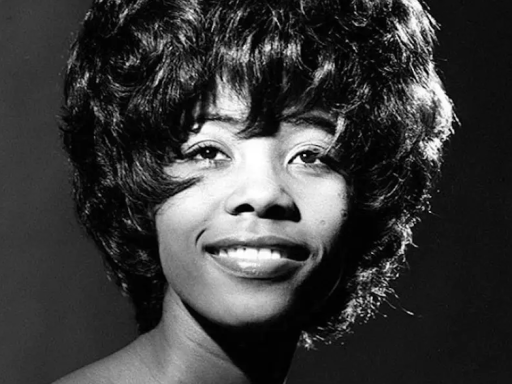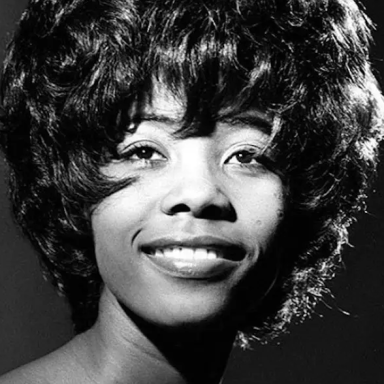
About Millie Small my boy lollipop Mixed by the Scientist
Millie Small: The Caribbean Voice That Brought Ska to the World
Introduction
Millie Small occupies a special place in the history of popular music as one of the first Jamaican artists to achieve global fame. With her 1964 hit “My Boy Lollipop,” she not only became an international sensation but also helped introduce Jamaican ska to the world stage. Small’s success marked a turning point for Caribbean music, paving the way for the later global dominance of reggae and other Jamaican genres. Her story reflects not just musical triumph, but also the challenges and cultural dynamics of a young Caribbean woman entering the male-dominated music industry of the 1960s.
Early Life and Musical Beginnings
Born Millicent Dolly May Small on October 6, 1946, in Clarendon, Jamaica, Millie Small grew up in a rural family of twelve siblings. From an early age, she displayed a natural talent for singing and performing. Her first significant opportunity came when she won the Vere Johns Opportunity Hour, a popular Jamaican talent show that had previously launched the careers of artists such as Alton Ellis and The Wailers.
At the age of 12, she moved to Kingston, the epicenter of Jamaica’s music scene, to pursue her musical ambitions. There, she was mentored by Clement “Coxsone” Dodd of Studio One, one of Jamaica’s most influential producers. She recorded a few early songs, including “Sugar Plum” and “We’ll Meet,” which displayed her distinctively high-pitched, youthful voice that would later become her trademark.
Rise to International Fame
Millie Small’s big break came when she was discovered by Chris Blackwell, founder of Island Records. Recognizing her potential, Blackwell took her to London in 1963 to record new material aimed at international audiences. The result was “My Boy Lollipop,” a remake of a 1956 R&B hit originally sung by Barbie Gaye.
Released in 1964, the song became an overnight success. With its infectious ska rhythm, upbeat tempo, and Small’s sweet, girlish vocals, “My Boy Lollipop” captivated listeners around the world. It reached No. 2 on both the UK Singles Chart and the U.S. Billboard Hot 100, selling over seven million copies worldwide.
This achievement made Millie Small Jamaica’s first international pop star and marked the first time ska—a precursor to reggae—had reached such a vast global audience. The song’s playful, innocent energy resonated with the youth culture of the 1960s and introduced millions to the island’s emerging sound.
Impact and Cultural Significance
Millie Small’s success with “My Boy Lollipop” was groundbreaking for several reasons. Firstly, it popularized Jamaican music internationally, creating curiosity and demand for the island’s distinctive rhythms. This opened the door for later artists such as Desmond Dekker, Jimmy Cliff, and Bob Marley, whose work would define reggae and its offshoots.
Secondly, as a young Black woman from a developing nation, Small broke racial and cultural barriers in the entertainment industry. At a time when few Caribbean artists had access to major Western markets, her global appeal demonstrated the universal power of Jamaican creativity and rhythm.
Moreover, her stage presence and image—bright, joyful, and youthful—reflected a new form of Caribbean identity that contrasted with the colonial stereotypes often imposed on the region. She became an ambassador for Jamaican culture, performing internationally and appearing on major television programs such as Top of the Pops and The Ed Sullivan Show.
Later Career and Legacy
Despite her early success, Millie Small struggled to maintain her commercial momentum. Follow-up releases like “Sweet William” and “Oh Henry” achieved moderate chart success but failed to replicate the massive impact of her debut hit. By the late 1960s, as musical tastes evolved toward rocksteady and reggae, her popularity declined.
Small continued to record sporadically and toured internationally but eventually withdrew from the music industry in the 1970s. She lived quietly in London for many years, occasionally giving interviews reflecting on her experiences as a pioneer of Jamaican music.
In 2011, the Jamaican government awarded her the Commander of the Order of Distinction (CD) for her contribution to the nation’s music industry. Her legacy endures not only through “My Boy Lollipop” but also through her role in shaping the global perception of Jamaican music. She passed away on May 5, 2020, at the age of 73.
Conclusion
Millie Small’s career, though brief in its commercial peak, left an indelible mark on world music history. With “My Boy Lollipop,” she introduced ska and the vibrant sound of Jamaica to millions, bridging cultural divides and laying the foundation for reggae’s later global success. Her journey from a small town in Clarendon to the international stage symbolizes the power of music to transcend boundaries and unite people through rhythm and joy.
Millie Small’s story remains a testament to the enduring spirit of Caribbean creativity and the profound global influence of Jamaican music.
References (Suggested Sources)
Barrow, Steve & Dalton, Peter. Reggae: The Rough Guide. Rough Guides, 2001.
Bradley, Lloyd. Bass Culture: When Reggae Was King. Penguin, 2000.
Katz, David. Solid Foundation: An Oral History of Reggae. Bloomsbury, 2012.
The Guardian, “Millie Small, My Boy Lollipop Singer, Dies Aged 73.” May 2020.
BBC News Archive, “The Jamaican Singer Who Brought Ska to the World.”







